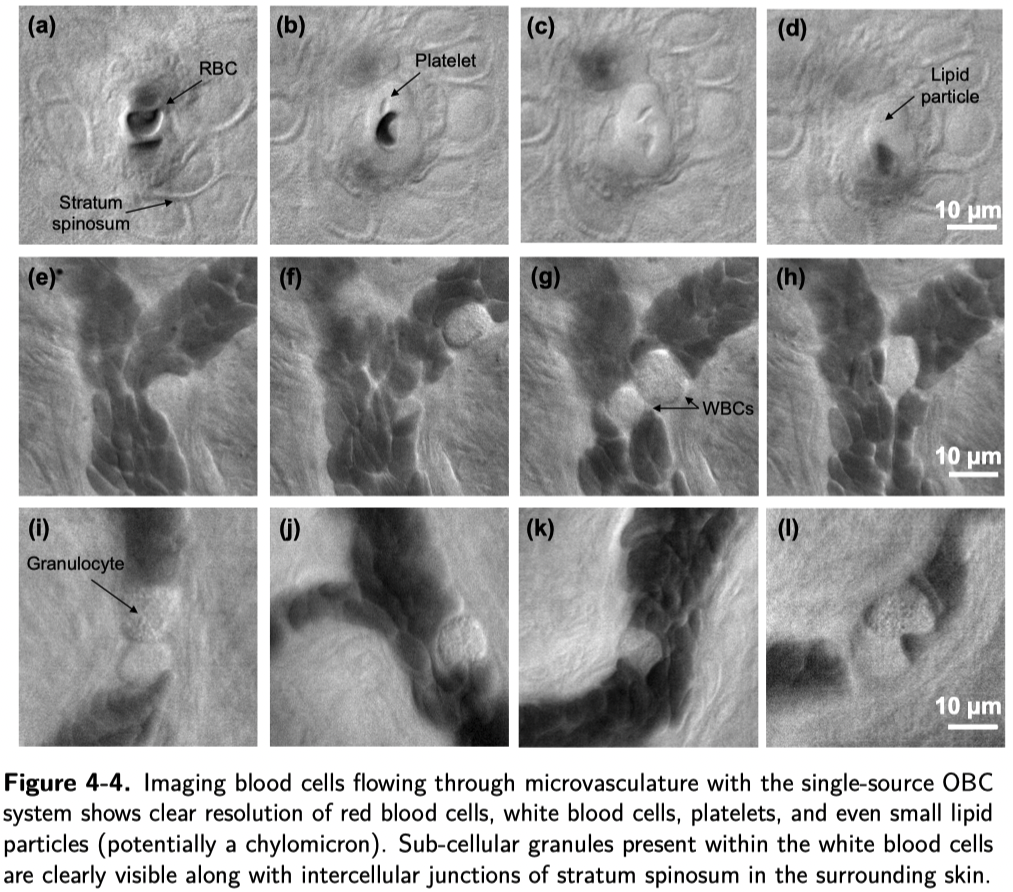Towards non-invasive blood cell counting and analysis with oblique back-illumination capillaroscopy
McKay GN
Ph.D. Thesis, 2022
Abstract
Blood is indispensable in human life. Proper perfusion supplies nutrients and oxygen, removes waste, facilitates immune responses, and transports vital signaling molecules to nearly every tissue of the human body. Laboratory-based analysis of blood is a critical component of modern clinical care, providing medical staff with crucial information about health and disease. Among these diagnostic and analytic tests, the complete blood count (CBC) is the most common. The CBC, like most other blood tests, is invasive. It requires phlebotomy and transportation to complex and expensive laboratory equipment for analysis. Often, when disease is suspected, a blood smear is also ordered, where blood is deposited as monolayer on a glass slide and further analyzed by a hematologist using microscopy. These two tests provide the cornerstone for the diagnosis of hematologic disorders such as anemia, leukemia, sickle cell disease, myeloproliferative disorders, and thrombocytopenia. The CBC and blood smear are precise and effective tools that have been developed over centuries, however their invasive nature and reliance on complex and expensive equipment poses problems for certain vulnerable patient populations. The immunosuppressed are at risk of nosocomial infection, neonates are at risk of iatrogenic anemia, and many patients in remote and low-resource settings do not have access to necessary laboratory equipment. Thus, a device capable of providing non-invasive blood cell counting and analysis would fill an unmet clinical need for a diverse group of patients. Such a device would need to probe blood cells flowing through capillaries and other blood vessels in vivo, ideally in a label-free manner for safest use in humans. The work presented in this dissertation provides the foundation for such a technology, a combined phase and absorption contrast microscopy technique called oblique ii back-illumination capillaroscopy. This technique enables non-invasive, label-free imaging of individual blood cells flowing through human capillaries with simple, relatively low-cost equipment. Combined with deep learning based computer vision algorithms, oblique back- illumination capillaroscopy promises a new chapter of hematologic analysis and biomarker discovery.
